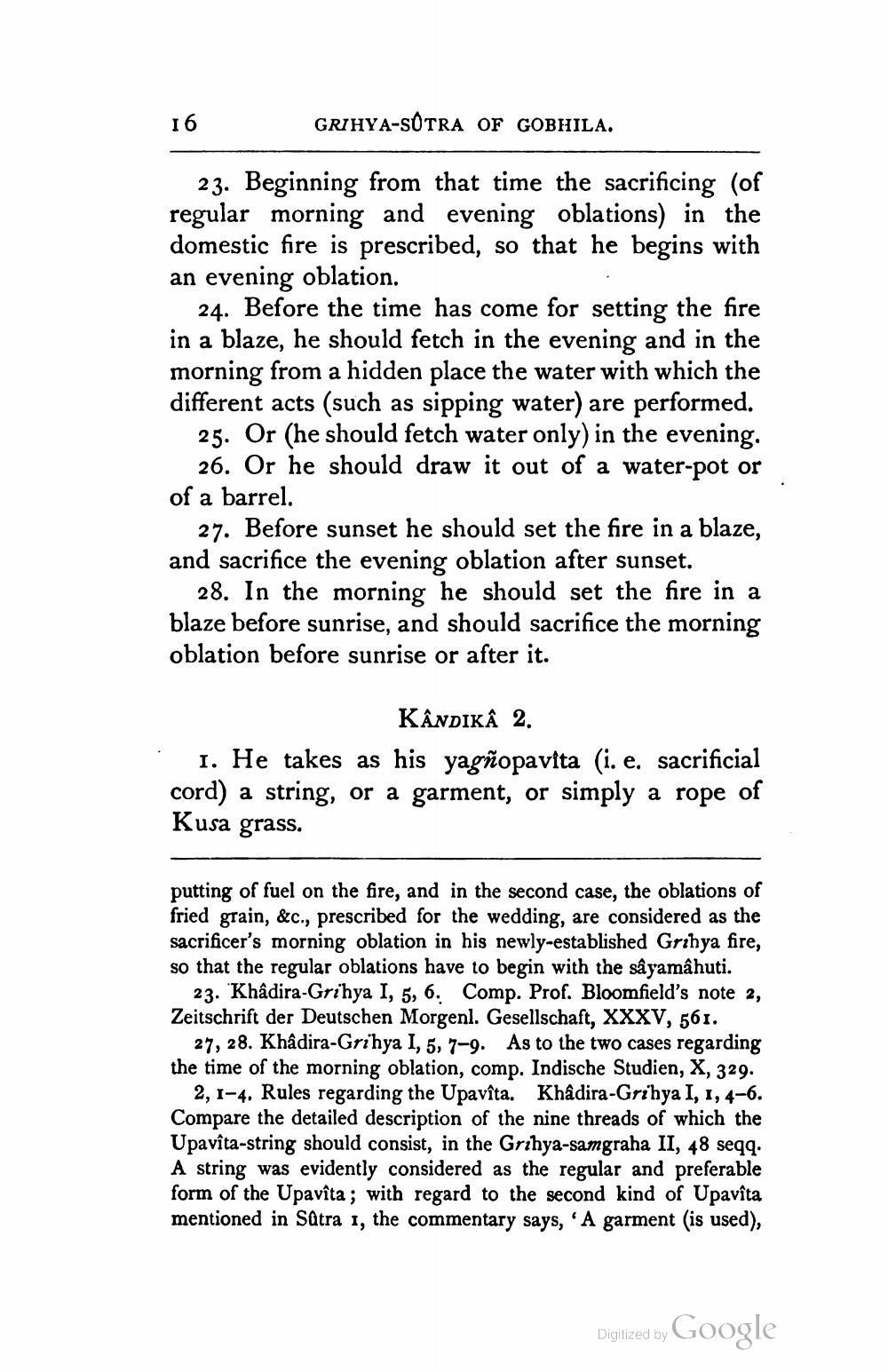________________
16
GRIHYA-SOTRA OF GOBHILA.
23. Beginning from that time the sacrificing (of regular morning and evening oblations) in the domestic fire is prescribed, so that he begins with an evening oblation.
24. Before the time has come for setting the fire in a blaze, he should fetch in the evening and in the morning from a hidden place the water with which the different acts (such as sipping water) are performed.
25. Or (he should fetch water only) in the evening.
26. Or he should draw it out of a water-pot or of a barrel.
27. Before sunset he should set the fire in a blaze, and sacrifice the evening oblation after sunset.
28. In the morning he should set the fire in a blaze before sunrise, and should sacrifice the morning oblation before sunrise or after it.
KÂNDIKÂ 2. 1. He takes as his yagñopavita (i. e. sacrificial cord) a string, or a garment, or simply a rope of Kusa grass.
putting of fuel on the fire, and in the second case, the oblations of fried grain, &c., prescribed for the wedding, are considered as the sacrificer's morning oblation in his newly-established Grihya fire, so that the regular oblations have to begin with the sấyamâhuti.
23. Khâdira-Grihya I, 5, 6. Comp. Prof. Bloomfield's note 2, Zeitschrift der Deutschen Morgenl. Gesellschaft, XXXV, 561.
27, 28. Khâdira-Grihya 1, 5, 7-9. As to the two cases regarding the time of the morning oblation, comp. Indische Studien, X, 329.
2,1-4. Rules regarding the Upavîta. Khâdira-Grihya I, 1, 4-6. Compare the detailed description of the nine threads of which the Upavîta-string should consist, in the Grihya-samgraha II, 48 seqq. A string was evidently considered as the regular and preferable form of the Upavîta ; with regard to the second kind of Upavîta. mentioned in Sätra 1, the commentary says, 'A garment (is used),
Digilized by Google




